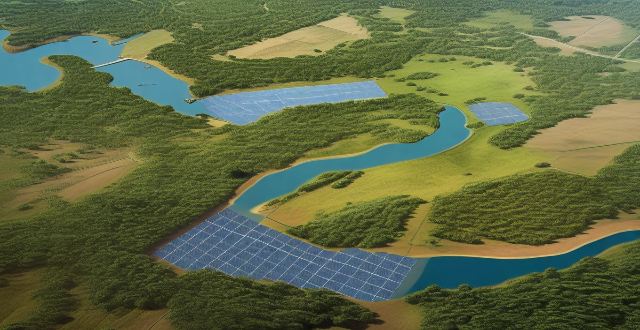Solar panels are a sustainable and cost-effective way to generate electricity. However, the lifespan of solar panels is an important factor to consider when making an investment in renewable energy. In this article, we will explore how long solar panels typically last and what factors can affect their lifespan. Solar panels are designed to last for several decades, with most manufacturers offering warranties of 25 years or more. However, the actual lifespan of a solar panel can vary depending on several factors, including the quality of materials used, the installation process, and environmental factors. The quality of the materials used in the manufacturing process can significantly impact the lifespan of a solar panel. Proper installation ensures that the panel is securely mounted and protected from potential damage caused by weather conditions or other external factors. Environmental factors such as temperature, humidity, and exposure to sunlight can also impact the lifespan of a solar panel. To ensure that your solar panels last as long as possible, it is essential to perform regular maintenance checks. This includes keeping the panels clean, checking for damage, and monitoring performance over time. By following proper maintenance practices and monitoring your solar panel's performance over time, you can ensure that your investment in renewable energy pays off in the long run.

How Long Do Solar Panels Typically Last?
Solar panels are a sustainable and cost-effective way to generate electricity. However, the lifespan of solar panels is an important factor to consider when making an investment in renewable energy. In this article, we will explore how long solar panels typically last and what factors can affect their lifespan.
Overview
Solar panels are designed to last for several decades, with most manufacturers offering warranties of 25 years or more. However, the actual lifespan of a solar panel can vary depending on several factors, including the quality of the materials used, the installation process, and the environment in which it is installed.
Factors Affecting Solar Panel Lifespan
Quality of Materials
The quality of the materials used in the manufacturing process can significantly impact the lifespan of a solar panel. High-quality materials such as monocrystalline silicon cells tend to have longer lifespans than lower-quality materials like polycrystalline silicon cells.
Installation Process
The installation process is another critical factor that can affect the lifespan of a solar panel. Proper installation ensures that the panel is securely mounted and protected from potential damage caused by weather conditions or other external factors.
Environmental Factors
Environmental factors such as temperature, humidity, and exposure to sunlight can also impact the lifespan of a solar panel. For example, high temperatures can cause the cells to degrade faster, while exposure to moisture can lead to corrosion and reduced efficiency over time.
Maintenance Tips for Solar Panels
To ensure that your solar panels last as long as possible, it is essential to perform regular maintenance checks. Here are some tips for maintaining your solar panels:
- Keep the panels clean: Dust, dirt, and debris can accumulate on the surface of the panels, reducing their efficiency. Regular cleaning can help maintain optimal performance levels.
- Check for damage: Inspect your solar panels regularly for any signs of damage or wear and tear. If you notice any issues, contact a professional to repair or replace the affected panels.
- Monitor performance: Keep track of your solar panel's performance over time to identify any potential issues early on. This can help you take corrective action before any significant damage occurs.
Conclusion
In conclusion, solar panels are designed to last for several decades, with most manufacturers offering warranties of 25 years or more. However, the actual lifespan of a solar panel can vary depending on several factors, including the quality of materials used, the installation process, and environmental factors. By following proper maintenance practices and monitoring your solar panel's performance over time, you can ensure that your investment in renewable energy pays off in the long run.